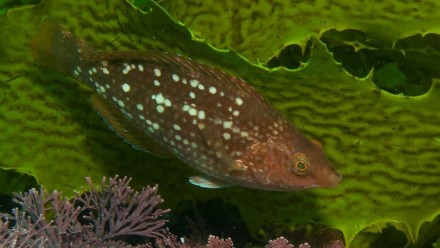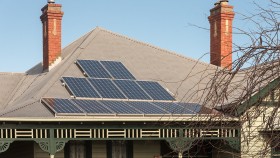Marine heatwave devastates kelp forest ecosystem
Gradual ocean warming, punctuated by a severe marine heatwave event, has caused the collapse of kelp forest ecosystems along the Western Australian coastline.
Writing in the journal Science, an international team of marine ecologists, including Dr Chris Fulton of the Research School of Biology, document how a 1-in-200 year heatwave event in 2011 caused the immediate loss of 960 square km of kelp forest, which were then replaced by an assemblage of turfing macro-algae, invertebrates and fishes that are more characteristic of warmer waters around Ningaloo reef. This tropicalization has prevented the recovery of kelp forests across at least 100 km of coastline.
In a related paper in Ecological Indicators, Chris Fulton and Mae Noble demonstrate why this kelp forest loss arising from marine climate change is so concerning - many endemic reef fishes exclusively depend on kelp forests for habitat. In particular, many juvenile fishes use kelp forests as a key nursery habitat on offshore reefs, including species that are targeted by tourists and commercial fishers. With projections for increased ocean warming and more frequent marine heatwaves on both the east and west coasts of Australia, we are likely to see further losses of the kelp forests that support diverse fisheries, tourism and other ecosystem services worth over $10 billion per year.
Wernberg, Bennett, Babcock, de Bettignies, Cure, Depczynski, Dufois, Fromont, Fulton et al. (2016) Climate-driven regime shift of a temperate marine ecosystem.Science 353, 169-172. Link: http://science.sciencemag.org/content/353/6295/169
Fulton, Noble, Radford, Gallen & Harasti (2016) Microhabitat selectivity underpins regional indicators of fish abundance and replenishment. Ecological Indicators 70, 222-231. Link: http://authors.elsevier.com/a/1TG8U,XRNLRPJU











